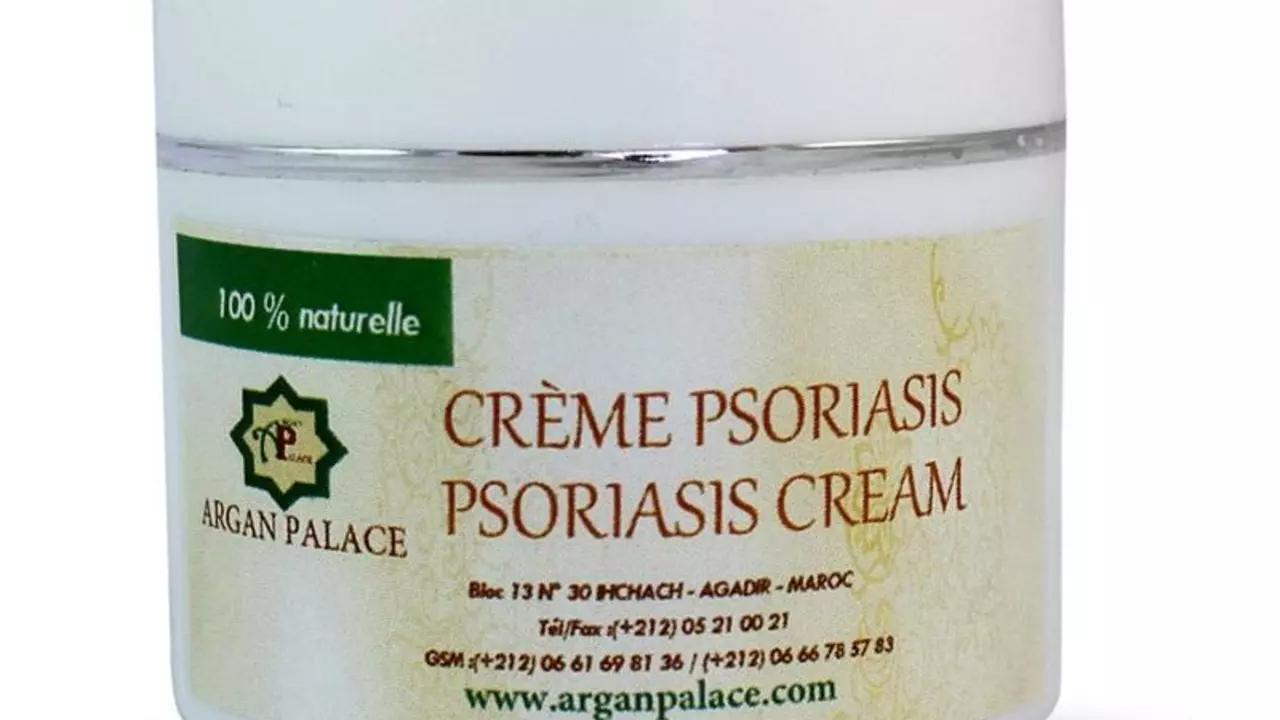Understanding Plaque Psoriasis and the Role of Moisturizers
Before delving into the process of choosing the right moisturizer for plaque psoriasis, it's crucial to understand what plaque psoriasis is and how moisturizers can play a role in managing this chronic skin condition. Plaque psoriasis is a common form of psoriasis characterized by raised, red, and scaly skin patches. These patches, or plaques, can be itchy and painful, causing discomfort and embarrassment. Moisturizers, when used correctly, can help soothe these symptoms and improve the overall condition of the skin. A good moisturizer for plaque psoriasis should offer hydration, relieve itchiness and reduce inflammation.
Identifying Your Skin Type for the Perfect Moisturizer Match
Not all skin types are the same, and neither should be the moisturizers used. Identifying your skin type is the first step towards choosing the perfect moisturizer for your plaque psoriasis. Dry skin may require a heavier, oil-based moisturizer while oily skin may benefit from a lighter, water-based product. If your skin is sensitive, hypoallergenic and fragrance-free moisturizers might be the best bet. Do note that psoriasis-prone skin can be sensitive, so it's always wise to do a patch test before fully incorporating a new product into your skincare routine.
Ingredients to Look for in a Moisturizer for Plaque Psoriasis
When it comes to choosing a moisturizer for plaque psoriasis, certain ingredients have proven to be beneficial. Hyaluronic acid and ceramides are great for hydration, while ingredients like aloe vera and colloidal oatmeal can soothe irritation and itchiness. Anti-inflammatory ingredients such as niacinamide can also be beneficial. It's also worth considering moisturizers with salicylic acid or urea, which can help soften and remove psoriasis scales. However, be aware that these ingredients can be irritating for some, so use them with caution.
Avoiding Irritants in Moisturizers
While some ingredients can be beneficial for plaque psoriasis, others can be harmful and should be avoided. Fragrances, dyes, preservatives, and certain alcohols can irritate the skin and exacerbate psoriasis symptoms. It's also best to avoid products with alpha-hydroxy acids (AHAs) and retinoids, as these can be too harsh for psoriasis-prone skin. Always read the ingredient list carefully before purchasing a moisturizer, and when in doubt, consult a dermatologist for advice.
Experimenting with Different Moisturizers
Finally, it's important to remember that what works for one person may not necessarily work for another. Just because a moisturizer has rave reviews, doesn't mean it will suit your skin perfectly. It may take some trial and error to find the right moisturizer for your plaque psoriasis. Start by trying out different products and observing how your skin responds. Keep track of what works and what doesn't, and over time, you'll get a better idea of what your skin likes and dislikes. Remember, the journey to managing plaque psoriasis is a personal one, and it's all about finding what works best for you.





Barbara Ventura
I just slap on whatever’s cheapest at CVS. It works. Sort of.
laura balfour
I tried everything-ceramides, hyaluronic acid, even that weird oatmeal cream from the UK-and nothing beat plain petroleum jelly. Yes, it’s gross. But it doesn’t sting. And it’s literally just oil. 🤷♀️
abidemi adekitan
Yo, I’m from Lagos and we don’t have fancy moisturizers here. We use shea butter, pure, unrefined, straight from the market. No chemicals, no labels, just skin that’s been healing for centuries. Try it. Your plaques will thank you. 🌍✨
Barna Buxbaum
Honestly? The real secret isn’t the product-it’s consistency. Moisturize within 3 minutes of showering, every single day, no matter how tired you are. I’ve had zero flares for 18 months since I started this. Not magic. Just discipline.
Deanna Williamson
You’re all missing the point. The FDA doesn’t regulate moisturizers like drugs. That means any brand can slap 'psoriasis-friendly' on a jar of baby oil and call it science. You’re being manipulated by marketing. Stop buying into this.
Leah Ackerson
I used to cry in the shower because my skin cracked so bad... then I found this $12 cream with 10% urea and my life changed. Like, I actually hugged my partner again without feeling ashamed. 🥹 You’re not broken. You just haven’t found your match yet.
Ramesh Kumar
Bro, in India we use coconut oil + turmeric paste. It’s ancient, it’s cheap, and it works better than anything in a pharmacy. Why do you think they call it 'golden milk'? It’s not just for chai, fam.
Abbey Travis
Just a little reminder: your skin isn’t your enemy. It’s trying to protect you. Treat it like a friend who’s had a rough day. Gentle. Patient. No judgment. You got this.
ahmed ali
Okay but have you heard of the glyphosate theory? Big Pharma doesn’t want you to know that moisturizers with parabens are linked to Roundup exposure. They’re hiding the truth. I read a blog post from a guy in Oregon who quit his job to investigate this. His name was Steve. He disappeared. Coincidence? I think not.
Diana Jones
Let me be clear: if you’re using something that doesn’t contain ceramides, niacinamide, and at least 2% colloidal oatmeal, you’re not treating psoriasis-you’re just slathering on placebo. Stop wasting your money. Your skin deserves better.
Gary Campbell
You think this is about moisturizers? Nah. This is about the 5G towers. They’re altering your skin’s pH. That’s why your plaques flare. I’ve got a tinfoil hat that blocks the frequencies. I wear it while I apply my cream. It works. I’m not crazy. I’m prepared.
Stephen Lenzovich
I’ve traveled to 17 countries studying dermatological treatments. None compare to the French pharmacists’ approach. They use thermal spring water sprays, followed by a proprietary lipid complex developed by the Institut Pasteur. You’re using Walmart brands? Pathetic. You don’t deserve clear skin.
asha aurell
Urea works. That’s it.
Miracle Zona Ikhlas
I used to hate my skin. Now I look at it like a garden. Some days it’s dry, some days it’s wild. I water it. I don’t yell at it. You’re not failing. You’re growing.
naoki doe
Hey, I saw your post and I just had to say-I’ve been dealing with this since I was 12. I know you’re struggling. I’ve got a list of 12 creams I’ve tried. Want me to send it? I’ll even include the expiry dates.
renee granados
Everyone’s talking about ingredients like they’re magic spells. Here’s the truth: most of this stuff is just water with a price tag. Your body doesn’t care if it’s 'hypoallergenic' or 'dermatologist-tested'. It cares if it’s greasy enough to seal in moisture. Use Vaseline. End of story.
Alisha Cervone
I tried everything. Nothing worked. Then I stopped caring. My plaques got better. Coincidence? Maybe. But I’m not wasting another dollar on a jar of lies.